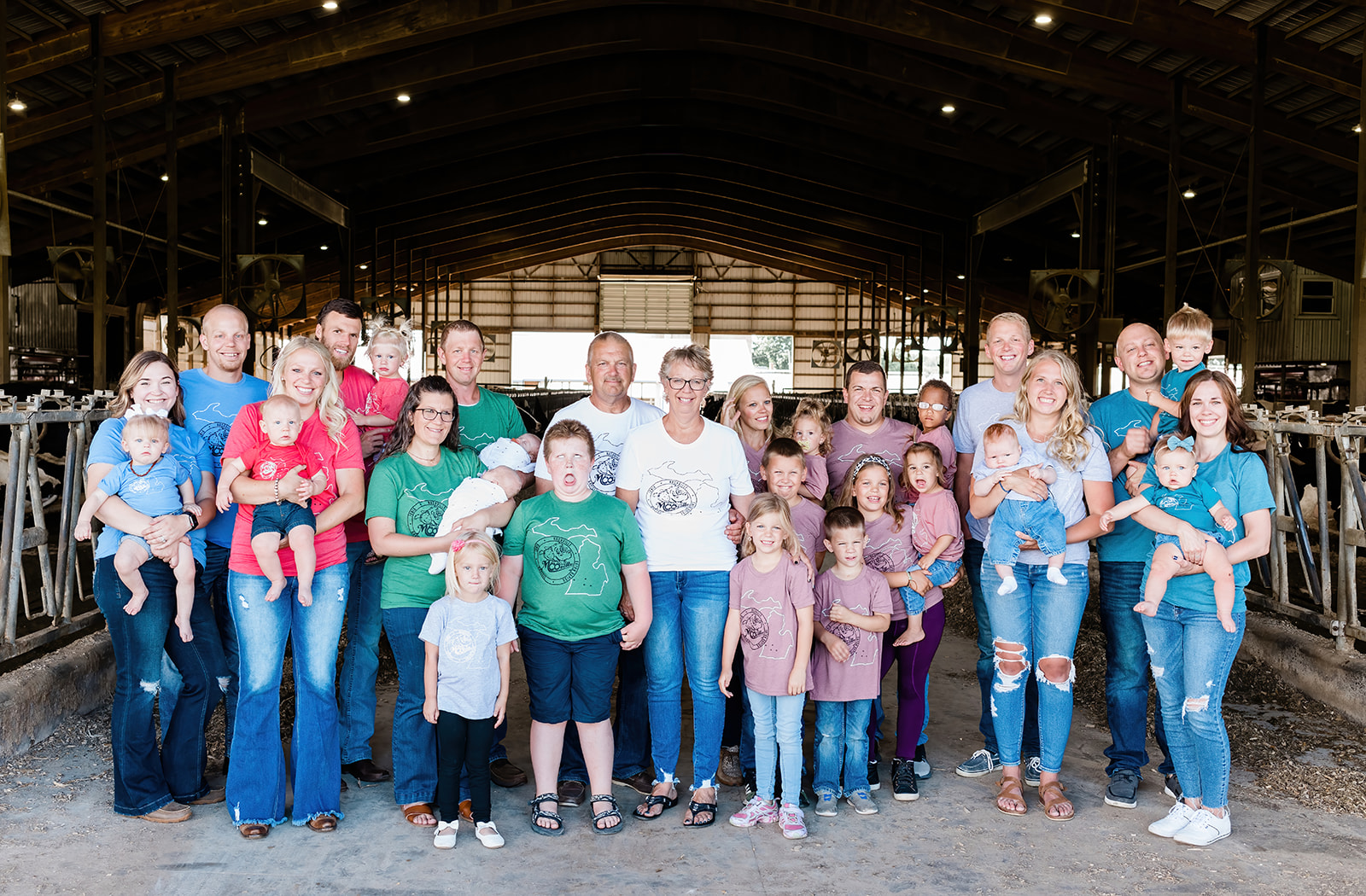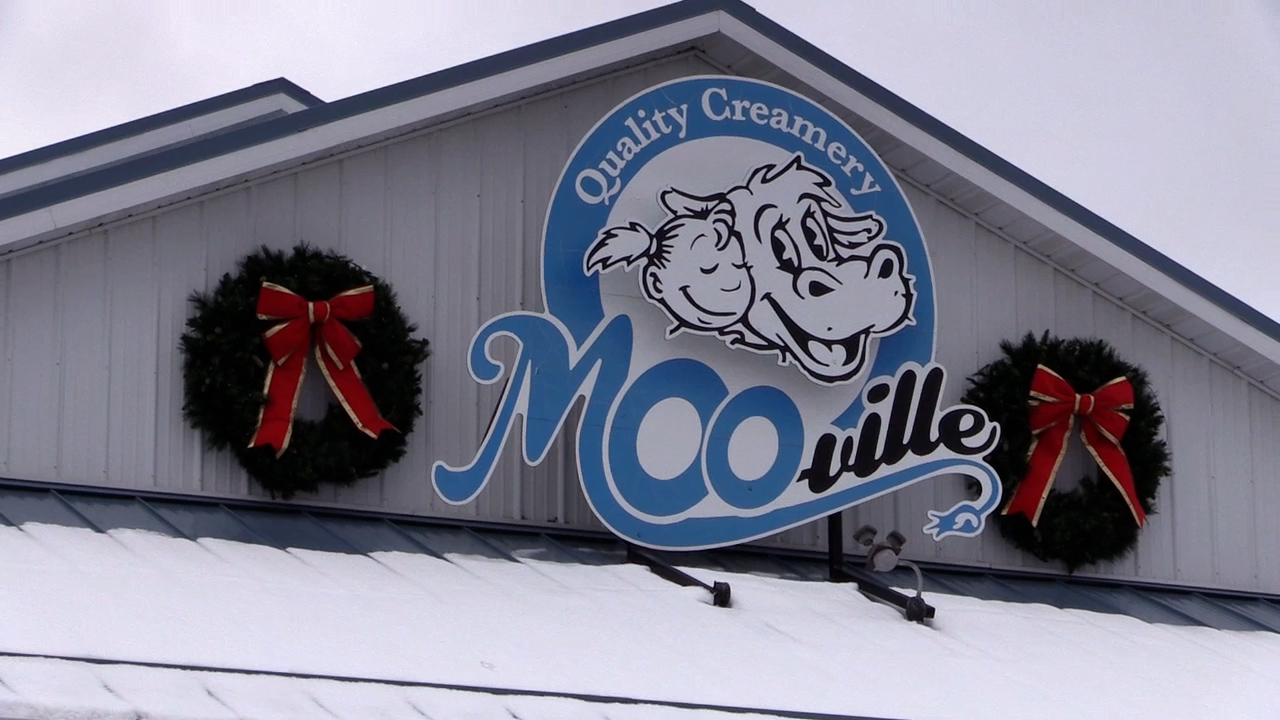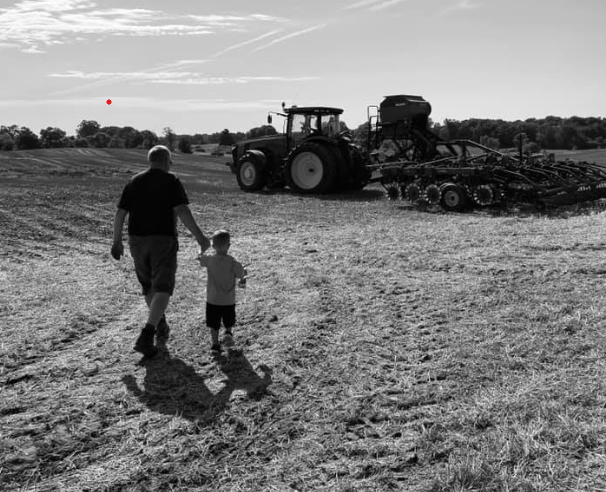Lawrence “Larry” Frederick Jerome, “Mr. Lali,” 74 of Barron, passed away on January 30, 2024, surrounded by his loving family after a courageous battle with cancer. He was an exemplary man who made a difference in the lives of many.
Larry was born in Minneapolis, MN on May 3, 1949, to Wallace and Marion (Estenson) Jerome. Larry was the second oldest son of 5 children. He graduated from Barron Area Senior High School in 1967. On July 18,1970, Larry married Shelley Miller, “the most beautiful girl in Barron County.” Larry proclaimed there was indeed, “love at first sight.” The first day he saw Shelley walking down the street, he knew he would marry her. Marry her he did, and they built a wonderful life raising seven children: Daria, Moriah, Jeremy, Alicia, Lyndon, Sacia, and Indira.
At the young age of 8, Larry owned his first horse. At age 9, he bought his first calf, and he started milking cows by age 13. He was a naturally gifted agriculturalist.
Larry loved school and had a passion for learning and teaching. He was involved in any and all extracurricular activities. If there was a play, program, or event, he was in it! He was active in choir, FFA and 4-H. Larry served on the National 4-H Board in 8th grade. He later served as a club leader and was on the Adult Leader’s Council.
At 19, Larry purchased the family’s current farm located in the center of Barron County that he lived on until his death. His mother said, “Jerland Farm started as a result of some 4-H projects that got out of hand for Larry!”
As a young farmer, he was an artificial inseminator for Midwest Breeders. He raised crops and milked dairy cows, developing a world leading 10th Generation Excellent Holstein Herd. Larry loved his well-kept yard and orderly farm, including the peacocks, beautiful flowers, and apple trees.
Larry’s “eye for genetics” made him a successful visionary, passionate breeder and exhibitor of German Shepherd dogs, Arabian horses, and Holstein cattle. He was honored to win multiple awards and leaves a worldwide network of connections and friendships. His legacy of animals all carry a “J” or Jerland in their name.
Along with his farming adventures, Larry also embarked on a professional music career at age 19 inspired by his dear friend, Lenore Berg. The “lounge lizard” found himself playing in local supper clubs where no requested song was off limits. He later created the band Intrigue. The band took him to summer band festivals throughout the Midwest. He spoke the universal language of music.
Larry was no stranger to the microphone. An “Ultimate Showman” whether it was a fundraiser, wedding, church picnic or the Arabian Breeders World Cup, he could organize, coordinate, and motivate like few others, touching hearts, and bringing tears.
Larry was a respected and hardworking member of the Barron community. He would often say “It doesn’t cost you anything to be kind” and his gestures reflected this. Larry showered love on his community with thoughtful gifts, flowers, fruit, beautifully penned notes, a phone call, or quick visit.
Always following the 4-H motto to “Make the Best Better”, Larry loved the Barron County Fair, the Barron County Junior Livestock Program, 4-H, and FFA. He was proud to be part of bringing the state-of-art weighing system to the Fair.
Larry was a lifelong member of the First United Methodist Church. He taught Sunday School, directed youth choir, served on the pastor parish committee, and sang in the choir. In recent years, Larry was a weekly musician at Arland Lutheran Church, playing piano and directing the kids’ choir. He was devoted to his Christian faith. His favorite Bible verse was John 3:16-17.
Larry was a son, brother, husband, father, grandfather, godfather, and instant friend. People would say that the first time they met, they felt like we had been life-long friends. As a loving and strict father with a firm discipline, he instilled the value of family, tradition, and hard work. He loved to claim with pride, “My kids know how to work!”
Larry believed in making time for fun. He would find time to go to the lake or travel to Hawaii in the winter months. He shared his love of traveling with his children and grandchildren. Whether it be on vacation or out to dinner, Larry was so proud of his family and loved them more than life.
Larry was forever grateful for the loving care he received from Shelley, “the best nurse” in Barron County, his children, in-laws, grandchildren, siblings, hospice staff, and countless caring community members and friends.
Larry is survived by his wife of 53 years, Shelley (Miller); daughter Daria (Reid) Stransky of Owatonna, MN, [children Joseph, Zacharia, Jerome, and Darian]; daughter Moriah (Matt) Fischer of Baldwin, [children Alec, Marion, Collin, and Samuel]; son Jeremy (Sara) of Lovell, WY, [children Arrya (Robert) Gaspar of Barron, Jeremy of Cameron, Callista, Xantha, and Petra]; daughter Alicia (Barry) Wirth of Ridgeland [children Julia, Braden, Adam, and Daniel]; son Lyndon (Sarah) of Elk Mound [children Logan, Lola, and Luke]; daughter Sacia Jerome (Theodore Koth) of Shorewood; and daughter Indira (Mike) Van Handel of River Falls, [children Alexis, Tristan, Easton, and Natalie]; brother Jerry (Billie Jean) of Cumberland; sisters Mary Ella of Barron, Candace (David) Arp of Decorah, IA, Julie (Bill) Brown of Cumberland; and many loving nieces, nephews, and cousins.
Larry was preceded in death by his father and mother, Wallace and Marion; father and mother-in-law, Eugene and June Miller.
A celebration of Larry Jerome’s Life will be held on Sunday, February 11, 2024 at 1:00 pm at the First United Methodist Church in Barron, Wisconsin. Visitation will be held at the First United Methodist Church on Saturday, February 10, 2024, from 3:00 pm until 7:00 pm. Service Live Stream: youtube.com@barronum9398. Burial will be at the Wayside Cemetery in Barron.
Larry carries the title as Samoan Chief and will be buried in his lava-lava.
Arrangements are being handled by Rausch and Steel Funeral Home in Barron. Online condolences can be made at www.rauschandsteelfuneralhome.com.
The Royal Agricultural Winter Fair Association of Canada’s Board of Directors has announced Cyrus Cooper’s appointment as CEO of The Royal Agricultural Winter Fair, starting immediately.









 Everyone at The Bullvine sends our condolences to Larry’s family and friends.
Everyone at The Bullvine sends our condolences to Larry’s family and friends.






